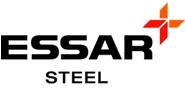Market Segment

July 17, 2014
Essar Steel Algoma Announces Refinancing/Recapitalization Agreement
Written by Sandy Williams
Essar Steel Algoma Inc., announced on Wednesday that Esssar Global Fund Limited, will provide $300 million of equity infusion along with planned refinancing of Algoma’s senior secured debt.
The following press release from Essar Steel Algoma contains details of the agreement.
SAULT STE. MARIE, ONTARIO, July 16, 2014 – Essar Steel Algoma Inc. (“Algoma”) announced today that it has reached an agreement in principle with the investment fund that is the ultimate owner of Algoma, Essar Global Fund Limited (“EGFL”), and holders of more than 70% in principal amount of its 9.875% senior unsecured notes (the “Ad Hoc Noteholder Committee”). This agreement provides for a near-term cash infusion from EGFL and a substantial deleveraging of Algoma’s balance sheet, with a total equity infusion from EGFL of up to $300 million concurrent with a planned refinancing of all of Algoma’s senior secured debt.
Algoma will complete this refinancing and recapitalization transaction through a Plan of Arrangement under the Canada Business Corporations Act. The transaction is subject to, among other things, the negotiation and execution of definitive documentation.
EGFL will provide Algoma with additional liquidity pending completion of the refinancing and recapitalization process. As a consequence, Algoma will continue normal operations during the recapitalization process. The Plan of Arrangement will not affect any employee, pension, retiree or trade obligations of Algoma. The Plan of Arrangement will only affect the unsecured note obligations.
“We are extremely pleased that we have reached a consensual agreement in principle with our significant unsecured noteholders and EGFL that, upon its consummation, will result in a recapitalized business, a refinanced capital structure, and financial flexibility to continue to make capital improvements,” said Kalyan Ghosh, Chief Executive Officer of Algoma. “The Board of Directors and management team have explored a number of alternatives. This path offers the best means to maximize long-term value while offering certainty of supply for customers and continued security for our employees, retirees, vendors and all other important stakeholders, which were key considerations.”
Further information regarding the details of the Plan of Arrangement and the related voting process will be outlined in the Management Proxy Circular, which will be distributed to unsecured noteholders and posted to Algoma’s website.
The Blackstone Group, Kirkland & Ellis LLP, and Stikeman Elliott LLP represent Algoma as financial advisor and outside legal counsel, respectively. The Ad Hoc Noteholder Committee is represented by Lazard, Paul, Weiss, Rifkind, Wharton & Garrison LLP, and Goodmans LLP.
This release is not an offer to sell or an offer to buy any securities.







